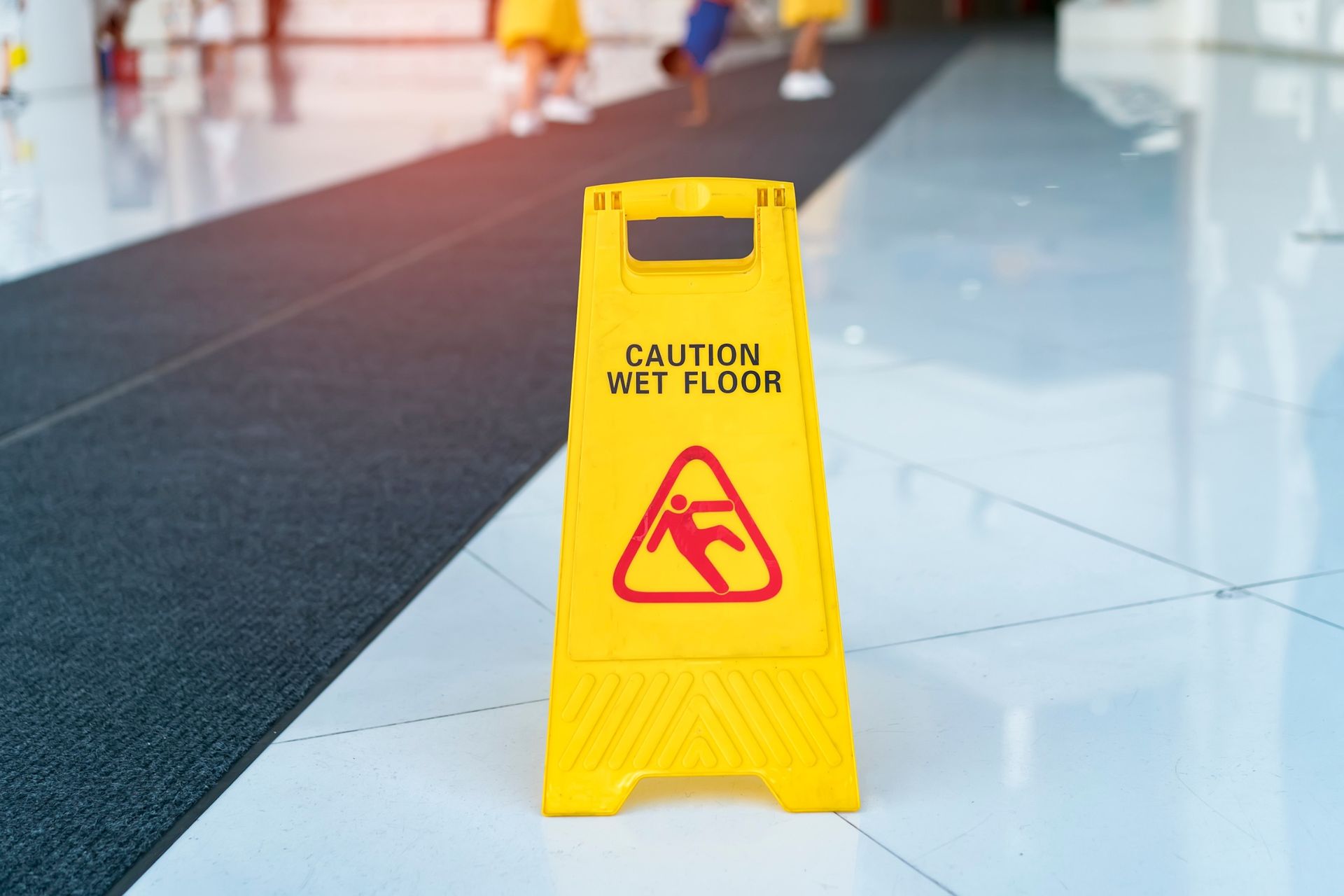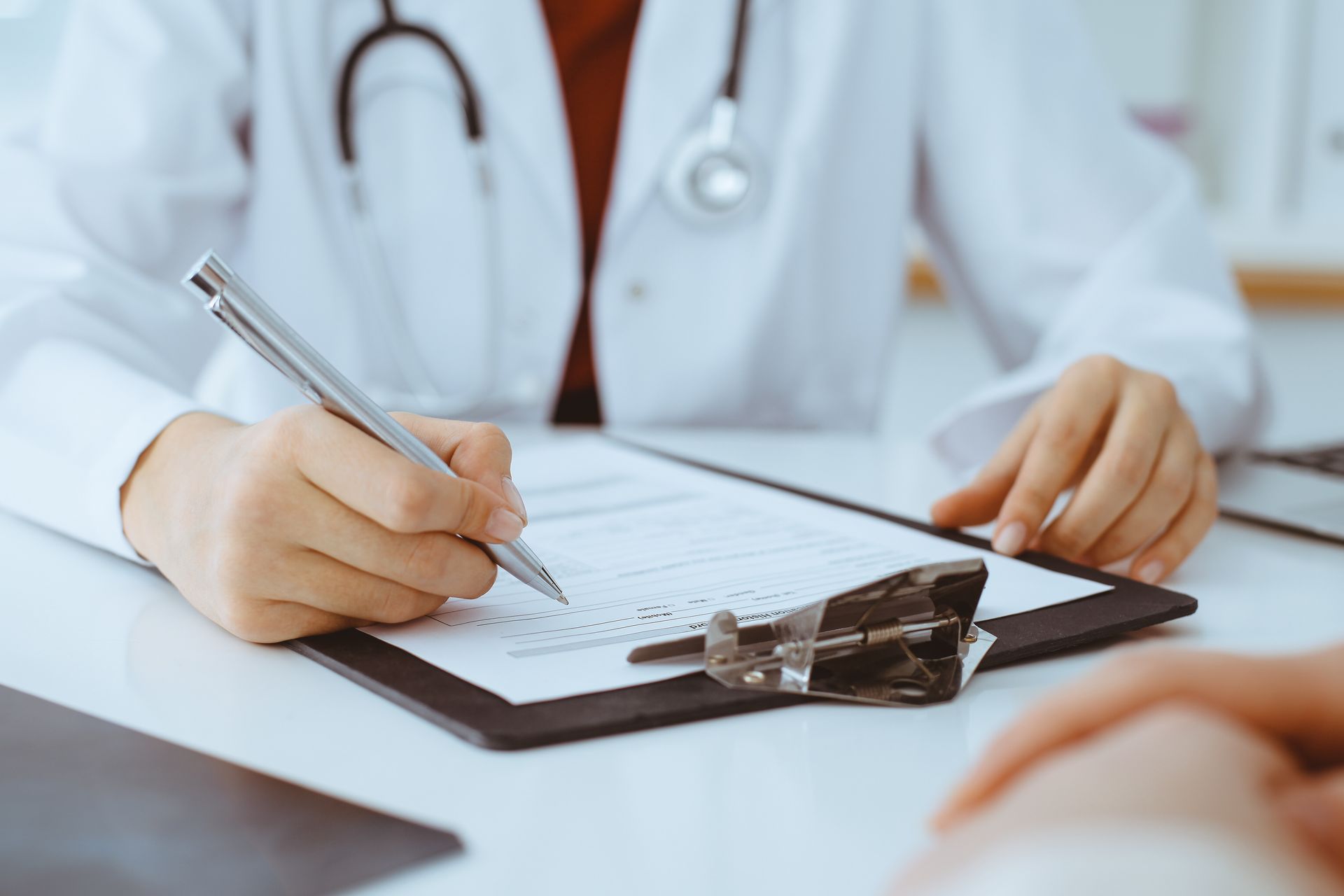The Personal Injury Claims Process
Getting injured because of auto accidents, slip-and-falls, electrical issues, damaged stairs, medical errors, or incidents in the workplace (especially on construction sites) are all too common. The CDC finds that the number of visits to physician offices for injuries totals 57.5 million and 37.9 million for emergency room visits.
So if you’re the victim of one of these unfortunate, and often traumatic, events, can you hope for swift justice?
The process is not complicated, but any victim of a personal injury should know: success is not a guaranteed outcome. How bumpy the road, what obstacles you’re forced to face, and even how much financial compensation depends greatly on how prepared you are with the details and handling of your case.
So, before you decide to file, here’s what you need to know about the personal injury claims process.
What Is the Process of a Personal Injury Claim?
Even though these are the general steps that a personal injury claim will go through, you should know that there can be quite a bit of overlap between each. For example, you might be receiving medical care while you consult with attorneys and go through a case review.
Step #1: Getting Medical Care for Injuries
“Oh, I don’t need medical care,” you might think, after a seemingly “minor” fender bender or rear-ender. But, the next day, or maybe in the next week, your shoulder starts to hurt or your lower back spasms – and suddenly you’re in a world of pain.
So, your first step is always to get medical treatment. Even if you don’t feel any physical pain, you might later on down the lane, so contact your physician for a routine check-up – you might be surprised at what you find.
You can also be asked to be taken to the emergency room or ask for medical attention from any police officers at the scene, if they haven’t already contacted emergency or first responder services.
This step is, of course, critical for your health. But, if something small spirals into a more serious issue, you’ll also need a paper trail of documentation to submit to your insurance provider for filing a claim and receiving at least some coverage for medication and examinations in the short term.
Step #2: Initial Consultation with a Personal Injury Attorney
At some point during your medical examinations and care, the physician will speak to you about the severity of your injuries.
And, if they are extreme, you may decide that now, as you’re recovering, is the time to begin the search for legal representation because you’ve decided the guilty party should be held accountable for their negligence.
The scope of the initial consultation phase depends on the attorney themselves and what their practice offers. Essentially, this is an exploratory phase for both you and your potential attorney.
Determining if your injury qualifies for a personal injury claim
After a personal injury, any of these points are fair grounds for consulting with a lawyer:
- You’re out of work for more than a couple of days.
- You broke a bone or experienced an injury resulting in continual, acute pain, turning chronic.
- Your medical bills total more than $5,000 to $10,000.
See, most states will help you settle losses (also known as “damages”) at or between those amounts, in small claims courts. They’ll also accept property damage claims or “small” personal injury claims like damages related to dog biting incidents.
However, these courts won’t hear personal injury cases with serious injuries or damages higher than those amounts. So, even if you’re in the middle of recovery or treatment, assess your financial bills as well as your ability to pay them.
This significant fact, plus the nature and extent of your injuries, will help the attorney you approach decide on whether you do have a case or not. If you do have a case, you’ll sign an agreement that outlines payment terms (like if they work on contingency or not), and the attorney-client relationship will officially begin.
Deciding when to file suit
No matter when you decide to engage the services of a personal injury lawyer, a smart attorney will know not to make any demands until you’ve reached a point of “MMI” or “maximum medical improvement.”
Even if your injuries result in having to commit to routine or ongoing medical appointments, “MMI” begins when you’ve ended all acute medical treatment and are as “recovered” as it’s possible to be.
There are two important reasons for this. First, committing to working with an attorney before you’re back to health will likely result in missed appointments and other complications because you never know if your medical situation might take a turn for the worse.
Second, until you’ve reached MMI, an attorney can’t accurately value a case – and neither can a jury. So the lawyer in question also shouldn’t file until you’ve hit the MMI stage because if you’re not ready by the time the case goes to trial, a jury might undervalue the compensation amount you deserve.
Step #3: Record Collection, Document Review, and Investigation
This part of the personal injury claims process includes collecting detailed information about your case, reviewing medical bills, claims documents, and police reports, and conducting any further investigation like speaking to witnesses.
Understanding who’s responsible for the personal injury
To file a personal injury claim or lawsuit, there has to be someone that needs to be held responsible for your injury or illness.
It may not be who you’re expecting, so let the attorney make this call. Your job at this point is simply to provide as much information as you can to help them decide who they have the best case against.
For example, if you experienced a workplace injury, it might not be your employer’s fault. Upon your attorney’s further investigation, it might turn out that your employer took all the precautions necessary – so you wouldn’t win this claim.
Instead, your attorney might focus on the equipment manufacturer, who failed to perform routine maintenance on it, resulting in your injury. And, often, it may not even be a person or a company, but, rather, their insurers.
Reviewing the details of the incident
Investigating the details of the incident is part of the services offered by your attorney’s firm. This is where your documentation, like medical reports, will come in handy. Your attorney will also consult police reports, if any, video evidence from CCTV footage, and interviews with witnesses that you’ve provided contact information for.
Step #4: Filing a Personal Injury Complaint Lawsuit
Once your attorney gathers evidence, reviews your medical documentation, and does the necessary paperwork that lays the groundwork for your case, they’ll file a personal injury lawsuit. The complaint or suit is the official document that details what the plaintiff claims are.
It’s up to the attorney’s office to locate and “serve” the defendant a copy of the complaint on them. These service papers will also detail when the defendant should appear in court. This occurs between 30 and 60 days of filing the lawsuit.
Defendants have 30 to 45 days to file a response – so, in total, this part of the personal injury claims process can take around three months.
Step #5: Pre-Trial Phase
You’re not in court yet, but you’re getting close – the “pre-trial” phase includes discovery and alternative dispute resolution (ADR) before you make it to court. The key here is to actually avoid going to court – so you may engage in mandatory settlement conferences.
Discovery
During the discovery process, your attorney will investigate what the defendant’s attorney’s legal claims and defense strategy are. The process may include depositions of witnesses, you, the plaintiff, and the defendant. This part of the personal injury claims process can last anywhere from six months to a year.
Mediation and negotiating a potential settlement outcome
ADR or alternative dispute resolution is becoming mandatory in an increasing number of states – so don’t be surprised if you’re compelled to work through the meditation process before your case is allowed to go to trial.
Usually, lawyers try to settle with the defendant’s legal team – or, barring this, will work with the mediator, a neutral third party, to reach a “fair” settlement amount. This is a compensation amount covering loss of wages, medical bills, loss of future income, and any other damages (like pain and suffering).
It’s really in your best interest to resolve the case during the settlement phase for two big reasons. First, juries can be notoriously unpredictable and often end up basing their decisions more on arbitrary criteria than knowledge of the law.
Second, cases that go to trial can be expensive and long because the judge may end up pushing back dates to fit their docket. This could hold up a compensation reward for up to two years after a case has been filed – which is a long time if you’re trying to handle all your bills.
Fighting for You In and Out of Court
Imagine hitting a pothole so hard, you hit your head on the steering wheel – and, what’s worse, you lose control of the car and crash into someone else. Should someone be held responsible for creating such a dangerous situation?
If you’ve been the victim of a personal injury, don’t delay speaking to an attorney. Many states have a statute of limitations on filing – which means that if you don’t file within a certain time, you can’t hold the party responsible later on. Schedule an appointment today to learn how to move forward with your case – and your life.










